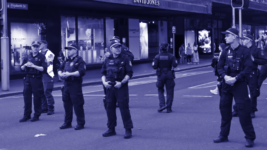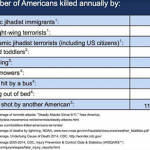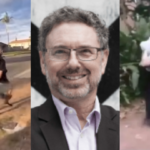Hundreds of NSW Police Officers Strike Over Ever-Thinning Blue Line

New South Wakes police officers announced on Tuesday, 8 October 2024 that they’re striking in their hundreds over nonurgent duties, as officers consider the agency is understaffed and those who are currently working the beat are increasingly being called upon by top police officials to undertake duties that don’t fit the job description that they’d originally signed up for.
The officers who have determined to strike in relation to particular duties are from seven South West Metropolitan Region Police Area Commands, including Auburn PAC, Camden PAC, Campbelltown PAC, Bankstown PAC, Cumberland PAC and Burwood PAC.
And Nine News reported that officers from Campsie PAC, Liverpool PAC, Cessnock Police Station and Maitland Police Station are likely to join.
The nonurgent duties that striking police officers will no longer be performing for the time being include conducting bail compliance checks, attending religious events, staffing stationary random breath testing operations, transferring prisoners, providing truancy checks for schools, transporting mental health patients to hospitals, dealing with parking matters or callouts to assist with animals.
Police Association of NSW president Kevin Morton told various news agencies that the NSW Police Force, one of the largest such forces in the English-speaking world, is currently 2,500 officers short of the number it needs to adequately function, and while “once upon a time” the police were “a 24/7 problem solver”, this is no longer the case.
A long-time stewing
“We are police not patient transporters, prisoner transport drivers, security guards, NDIS report takers, truancy officers, animal handlers or local rangers for the council,” wrote Morton in a letter being distributed to 16,000 police union members on Tuesday afternoon. “Our job is to protect our communities, and we need all hands available to do so at this time.”
“Once upon a time, we were a 24/7 problem solver and we’re not anymore,” Morton told Nine News. “There are a number of jobs that are coming through that don’t require a police response and our branches have said we’re not attending.”
Much of the political and media attention given to this announcement has tended to overlap this issue with that of the attempt by NSW authorities to stamp out the weekly pro-Palestinian rallies in Sydney city, but the concerns of police officers were actually being raised a month ago at a meeting of the Camden branch of the union, and further such discussions have taken place since.
A leaked document from Camden cited by Nine outlines that specialty officers being pulled away from regular work to cover general duties is a common practice that is “unsustainable”. And those present at the meeting further raised the point that despite not being trained to be mental health workers or paramedics, officers are tasked with these duties, which are beyond their expertise.
Calls to end mental health policing
These revelations have come on the back of a public debate about the need for an alternative to NSW police being called out as first responders to mental health crises in the community, which was sparked when a NSW police officer fatally tasered a 95-year-old grandmother in May 2023, which was followed by four other police-caused fatalities by January that related to mental health callouts.
Released the same month that the 95-year-old woman with dementia was lethally tasered, the Law Enforcement Conduct Commission review of the NSW police critical incidents, or those involving death or serious injury, investigations that it had monitored over the five years to June 2022 found that 43 percent, or 68 of the 157 incidents it had oversighted involved mental health episodes.
A subsequent NSW parliament mental health access inquiry considered police as first responders and reported in June this year that a number of negative impacts result from the calling out of police to respond to people in crisis, which can involve escalating a situation due to prior bad experiences with police, officers appearing heavy-handed or threatening, as well as a general fear of calling police.
And NSW police last month released a summary of its findings on the issue of officers as first responders, which too found that police can be an escalating factor at incidents, as well as being perceived as a threat or an authoritarian response, which can result in adverse outcomes for the person in crisis and limit the ability of the appropriate service to be engaged.
NSW police pointed to the Right Care, Right Person (RCRP) model that’s being adopted by London Metropolitan police, which now provides a separate Triple 1 emergency phone number that’s solely for mental health crises, and it ensures that medical experts are sent out to deal with a person in crisis, and this completely avoids any opportunity for police to be first responders.
An issue caused by politicians not protesters
The key recommendation made by NSW police in its internal review was that, in conjunction with NSW Health, it worked to develop a similar system to that being implemented in the UK. However, when the parliamentary inquiry made the same recommendation regarding the development of an alternative first response system, it was only supported in principle by the NSW government.
And it would appear that it’s politicians that could legislate away some of the great woes police officers working on the beat are dealing with at present.
Minns told the press on Wednesday that “there’s only so many jobs a police officer can do on any particular shift” and “there is very real and understandable pressure on NSW police officers when it comes to the callouts, particularly mental health callouts”. And he added that the union raised that point, and his government hadn’t dismissed it: but that means neither has it done anything about it.
Morton asserted that the strike on nonurgent police jobs had nothing to do with a union call for a 25 percent pay rise over four years, but rather, it was solely focused upon the excess in workload that has been an issue over many years and police are now pushing these nonurgent tasks back to those other agencies that should be dealing with them.
NSW police will only continue conducting bail compliance for high-risk domestic violence offenders, with bail checks and stationary random breath testing only being conducted when all other duties have been seen to. And NSW police officers will also continue to police protests, including the weekly pro-Palestinian demonstration, and it will coordinate rosters in regard to this.
So, it would appear the juxtaposition of this long building internal NSW police matter with the recent issue that developed last week over the policing of the 52-week-old Palestine Action Group Sydney protest has been developed into a political issue by the NSW major parties to further smear the reputation of pro-Palestinian protesters.







